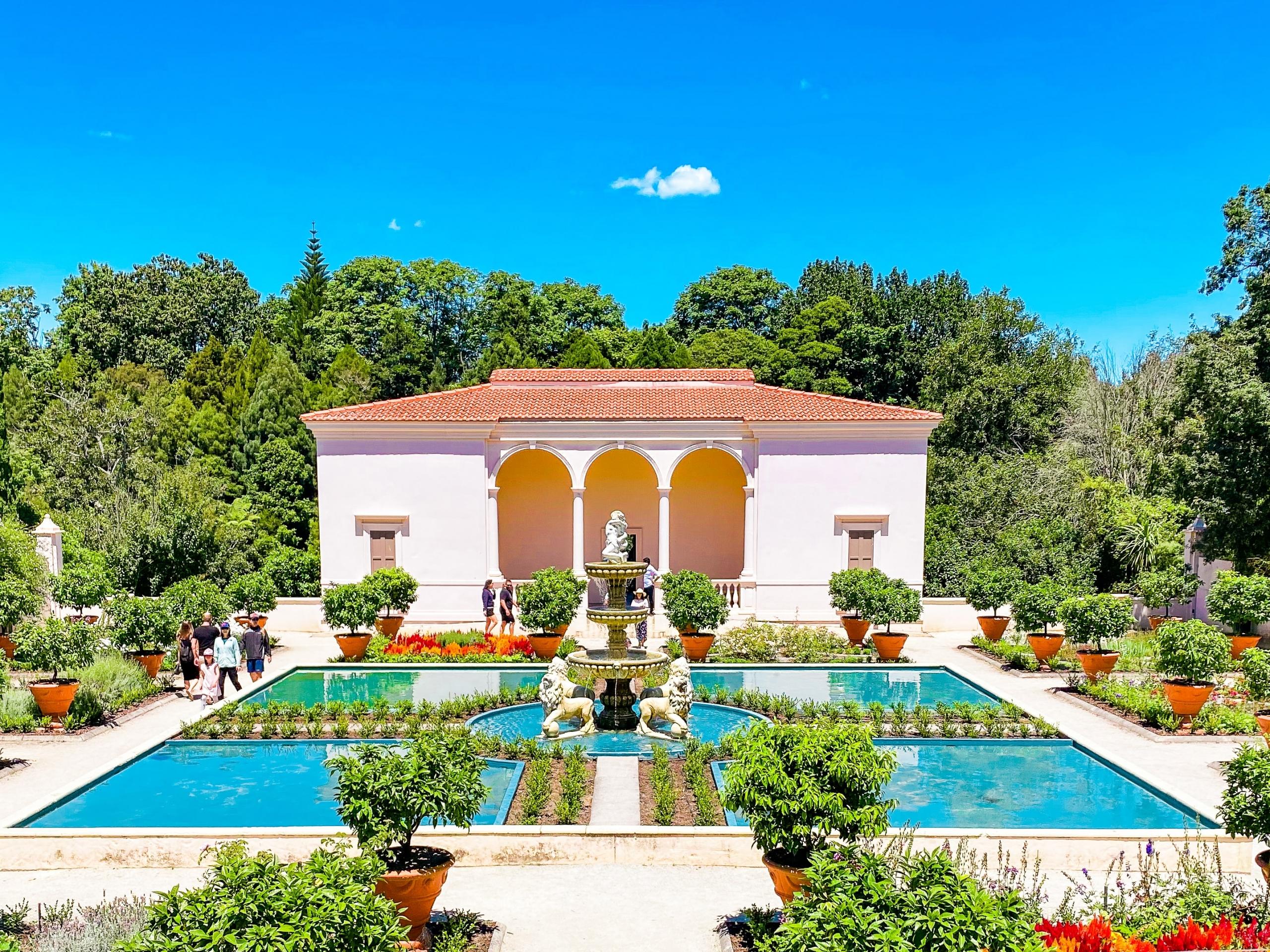Often referred to as the River City, Hamilton has a wide range of advantages to support student life. The fourth biggest city in the country and with half of its population under 30, it has many reasons for students to come and experience living in this part of Aotearoa New Zealand.
Home to a vast array of museums, galleries, music venues, sports centres, cafés, bars, and over 1000 hectares of open space, there is something here for everyone to enjoy. One of the major appeals of Hamilton is that it is located within an easy distance of Auckland and Raglan. From cities to beaches, Hamilton has a lot of benefits without the expenses you find in other major cities.

University of Waikato
Located in the heart of the mighty Waikato, the University of Waikato offers a range of Psychology courses at its Hamilton Campus. With around 13,000 students, the University of Waikato prides itself on its smaller class sizes and its ability to deliver future-forward education. Ranked 83rd in the world by The Times Higher Education Impact Rankings, the University of Waikato has a lot to offer students.
The overarching idea for all graduates from the University of Waikato is that they should leave with five key competencies when they have finished their studies.
Graduates leave as; innovative and creative critical thinkers, culturally competent citizens, disciplinary and professional thought leaders, ethical & integral citizens, and communicators & collaborators.
To support the development of these competencies the University offers a wide range of support inside and outside the classroom. With a state-of-the-art Student Centre, cafés, shops, sports facilities, non-profit campus crèche, a kōhanga, Māori and Pasifika students support and even an Esports Arena, the University of Waikato is bursting with a range of support services, clubs and activities for all students.
Another support for students are the hundreds of scholarships up for grabs. Combined with the relatively low cost of living compared to Auckland and Wellington, the University of Waikato is an excellent choice for those considering the financial implications of studying higher education.

Studying Psychology at Undergraduate Level
In general, Psychology at the University of Waikato is about understanding the behaviour and cognitive process of people and animals in their physical, social, and organisational environment. The University of Waikato offers undergraduate students four pathways for those who wish to major in Psychology.
This can be done through a Bachelor of Arts, Bachelor of Science, Bachelors of Climate Change or a Bachelor of Social Sciences. The difference between the four is in the specialisation of their degree and within certain areas of Psychology. One of the recommendations is that you have a pathway set in mind when it comes time to choose your third-year courses as there are many different pathways you can take. A student advisor can help you make sure you have chosen the correct combination of courses for the pathway you want to walk down.
Within these pathways, students look at Psychology through a variety of lenses such as behavioural science, cognitive science, biological science, social science, and even more. Students need to fulfil the requirements for their major and their degree in order to complete their studies.
Bachelor of Arts majoring in Psychology (BA)
A Bachelor of Arts is a wide-encompassing degree that enables students to study and explore the history and creative arts of humankind. By exploring these subjects you can see how they shape our societies and our future.
This three-year full-time degree majoring in Psychology has two compulsory courses in 100. For 200-level courses, you have one compulsory and two elective Psychology courses. For the 300 level, you can choose four PSYCH 300 courses but in order to continue onto graduate study, students must take the PSYCH 307 course Psychological Research Methods.
Interestingly Bachelor of Arts students have the option to take HMDEV 304 Perspectives on Counselling. This course examines psychological, philosophical and sociological principles fundamental to the aims and methods of the helping profession, with a particular focus on counselling. There is a vast range of Psychology courses available to students so take your time and read the fine print to see if they interest you and what are the requirements for the following year.


Bachelor Of Science majoring in Psychology (BSc)
A Bachelor of Science is about exploring the natural world around us and/or figuring out how things work. This pathway is hands-on as students will be using computing facilities and laboratories to put their knowledge into action.
For full-time students, this degree majoring in Psychology is three years. For 100 and 200 levels in Psychology, you have all compulsory courses. In 300-level courses, you choose four Psychology courses from a range of options. Like the Bachelor of Arts students, you will need to take the PSYCH 307 course Psychological Research Methods if you wish to continue with graduate studies in Psychology.
Bachelor of Social Sciences majoring in Psychology (BSocSc)
A Bachelor of Social Sciences focuses on contemporary issues and challenges the way you think about the world and how we live in it. This is explored by looking at how humans interact with contemporary issues and how our actions can be monitored and modified.
The duration of this degree is three years for full-time students. During that time you will complete two compulsory Psychology courses at the 100 level. In the 200 level, you can choose two courses within the approved Psychology courses offered, and for the 300 level, you select four. Like the two other pathways, the PSYCH 307-course Psychological Research Methods is required to continue on to graduate study.
Bachelor of Climate Change majoring in Psychology (BCC)

A Bachelor of Climate Change engages students with the most pressing environmental issue that we currently face and the impact it has on the world around us. Kicking off in 2022, this degree enables students to comprehensively understand climate change through the scientific, economic, social, and cultural lenses while trying to develop authentic solutions.
This three-year full-time degree is for the moment only accessible at the Hamilton Campus. In order to major in Psychology, students must complete the two compulsory courses at 100 level and the one compulsory course at 200 level. At the 200 level, students can choose two papers within the approved Psychology major list; at the 300 level, students choose four. There is no mention of a particular course needed in order to continue on with graduate study but it is best to verify with a student advisor or your lecturer.
Studying Psychology at Postgraduate Level
With both graduate and postgraduate courses available to you after the completion of your degree, the aim of postgraduate study is to enhance your knowledge within a field. This could mean studying a Postgraduate Diploma in Psychology or even a Masters level in your respective field of study (Master of Science, Masters of Arts, Masters of Social Science). For those who complete a Postgraduate Diploma in Psychology, it can lead to a Postgraduate Diploma in Psychology (Clinical) and even a Masters of Applied Psychology.
Where to find support for your studies
Once you have figured out what it is you want to study and where you want to do it. Click the link for more guides on other cities where you can study Psychology. Superprof can support you alongside your university in getting the most out of your education. Superprof enables you to access a database of tutors from across Aotearoa New Zealand and the world. Perfect for revision, exam preparation, learning support, and understanding key ideas, you can find the right tutor with Superprof.
If you're interested in studying across New Zealand, you can find courses options in:















